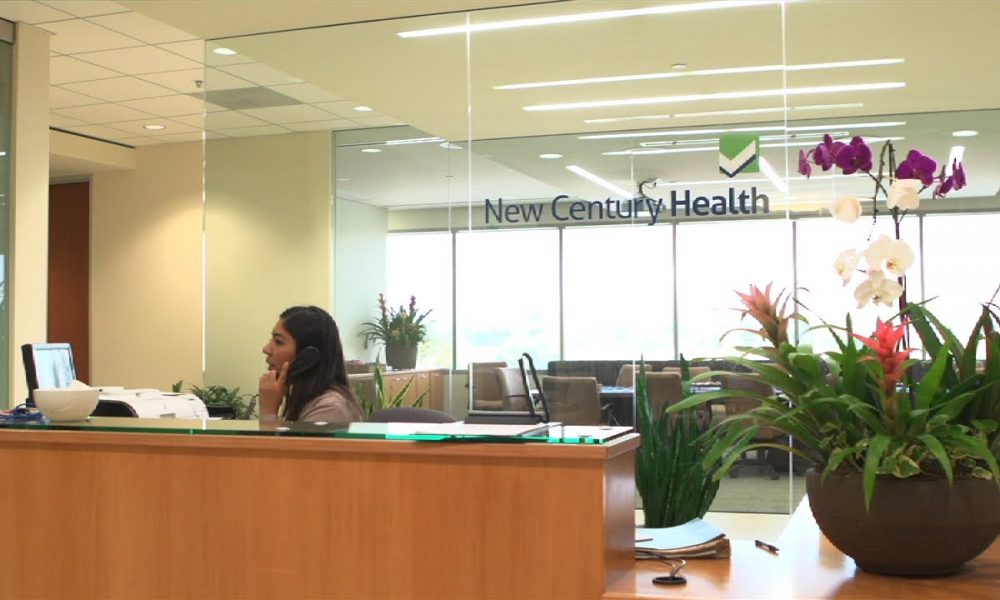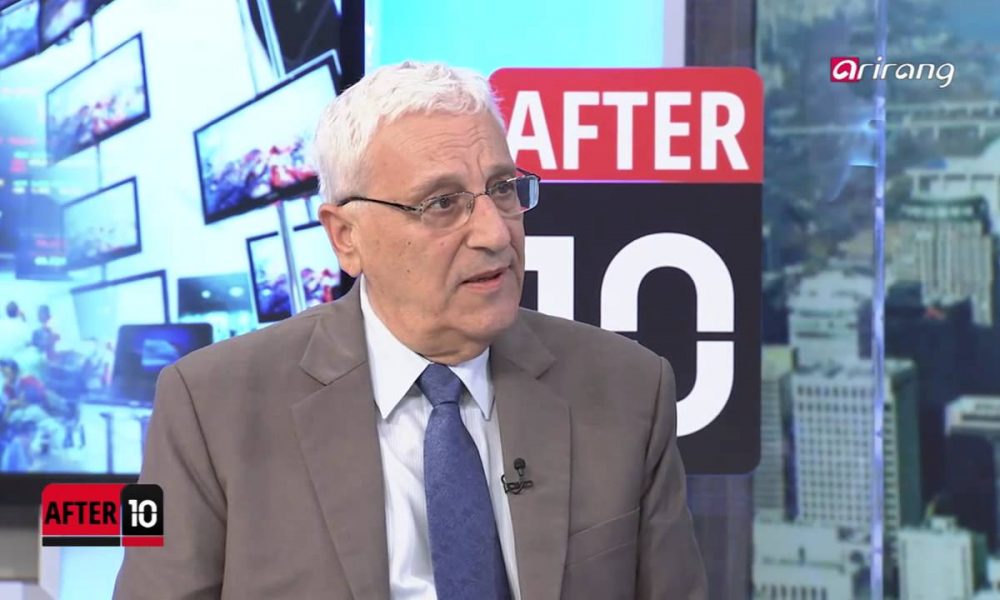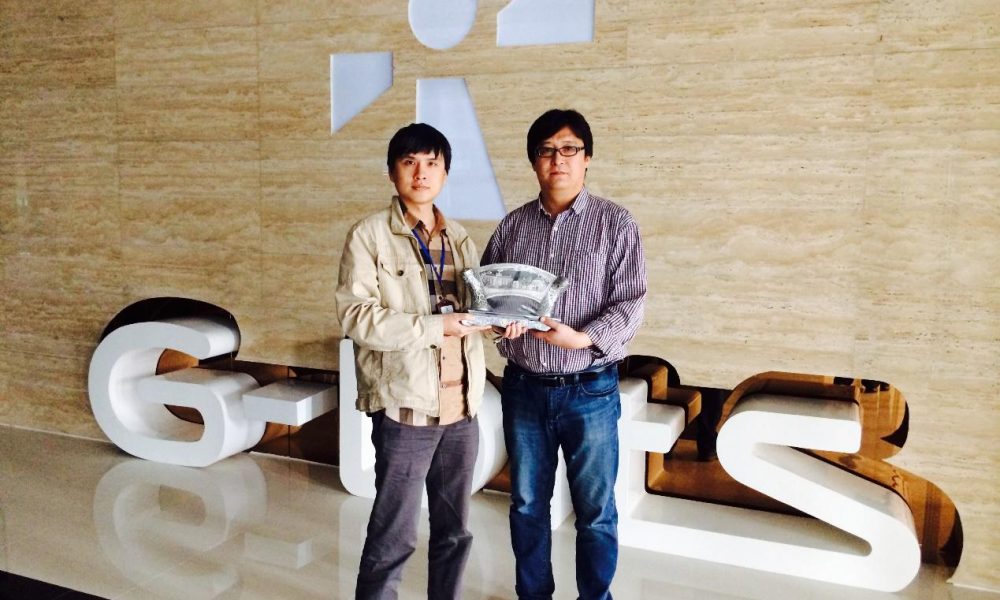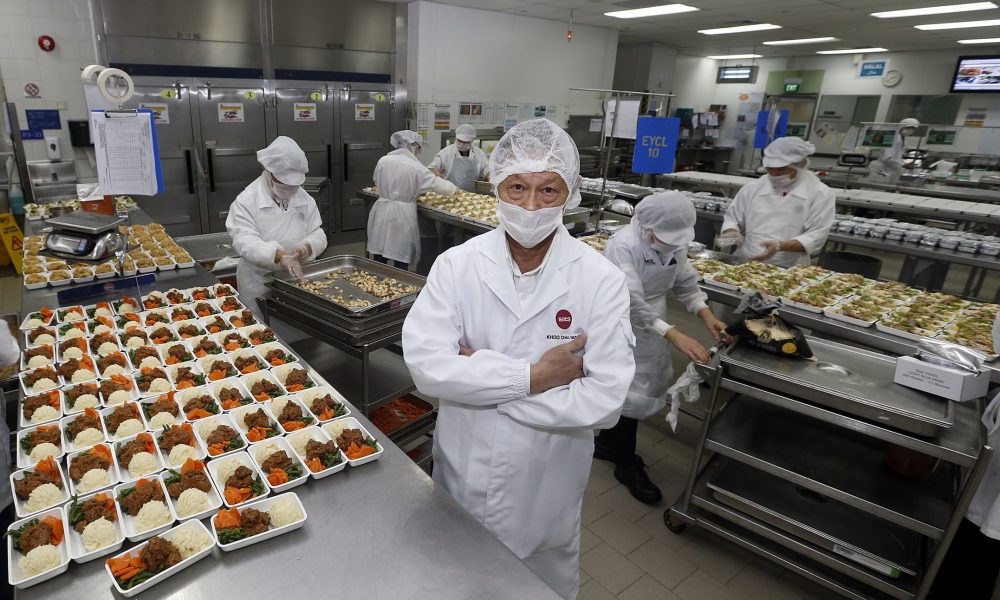Category: Enterprise
Samsung NEXT launches US$150m venture fund targeting AI, VR and IoT startups
Samsung’s investment arm has announced the creation of the Samsung NEXT Fund, a US$150 million venture capital investment fund, aimed to increase Samsung’s global support of early stage startups pursuing advanced software and services innovation.
The Samsung NEXT fund is initially known as the Samsung Global Innovation Center and was announced at the Consumer Electronics Show on Thursday. Having a Silicon Valley presence since 2013, the Innovation Center runs an accelerator, forms partnerships and make acquisitions and investments in startup focused on software and services.
In addition to capital funding, the Korean consumer tech giant will also provide domain expertise and access to various resources such as office space, equipment, and materials required by Early Stage Startups or tech entrepreneurs. This, in turn, will enable Samsung Next to build upon its multi-stage global innovation platform.
“We see software and services becoming a core part of Samsung Electronics’ DNA, and startups are key to achieving this vision,” said David Eun, president and founder of Samsung NEXT. “Samsung continues to embrace entrepreneurship at all levels and this Fund shows our unwavering commitment to support great startups worldwide.”
In particular, the Fund targets pre-Seed to Series B investments, and is concentrating on virtual reality (VR), artificial intelligence (AI), IoT and other new frontier technologies.
There are ten companies that have previously received capital from the Fund, which include Converge Industries, Dashbot, Entry Point VR, Filament, Intezer, LiquidSky, Otto Radio, 2Sens, SafeDK, and Virtru.
These selections ranging from Dashbot – an user analytics tools for software bots to Entry Point VR – company tools for easy distribution of virtual reality media across multiple devices, signals that NEXT is quite broad with its investments.
“Our investments bring the power of the Samsung platform to startups to accelerate their growth and ultimately their success,” said Brendon Kim, VP and Managing Director of Samsung NEXT Ventures. “The Samsung NEXT Fund expands our global reach and capabilities, while increasing Samsung’s access to more great ideas, products and talent.”
In September 2016, Samsung NEXT launched its newest office in Tel Aviv. making it the fifth for the organization, which currently has teams in Mountain View, New York, San Francisco and Korea. Samsung NEXT also said it will open additional locations in 2017.
“We’re very passionate about partnering with startups and developing meaningful relationships in startup ecosystems around the world,” said Emily Becher, Managing Director of Samsung NEXT Start and head of Samsung NEXT’s international expansion. “We leverage local experts to fuel traction and drive scale for startups right where they are.”
To coincide with Samsung NEXT’s international expansion and launch of the fund, the company has initiated its first major rebrand effort, which includes the renaming of its organization to “Samsung NEXT” and the release of a new logo and website. With the rebrand, the company’s goal is to simplify its identity and clarify its message and mission.At CES 2017 Eureka Park, Samusung NEXT will also be showcasing the founders and watch demos from some of Samsung’s portfolio startups which includes VR animations company Baobab Studios, gloud gaming and company LiquidSky and IoT services company Filament.
By Vivian Foo, Unicorn Media
China’s New Century Healthcare targets US$129 million in Hong Kong IPO
Beijing-headquartered pediatric hospital operator New Century Healthcare is planning to raise up to HK$1 billion (about US$129 million) in an initial public offer (IPO) at the Hong Kong stock exchange this month.
The BoAML and CICC-sponsored pediatric healthcare provider had launched this IPO last week where 120 million new shares are pitched at a price ranging from HK$6.36 to HK $8.36 each.
According to the IPO prospectus of the company, there is also a potential 15 percent green-shoe option to sell an additional 18 million new shares.
Private equity firms CDH, Tianjin Yanshan Investment Management Co along with others also have a substantial stake in the hospital operator.
At present, New Century Healthcare operates three pediatric clinics in Beijing and since November last year, has diversified into obstetrics and gynecology with the acquisition of the BNC Women’s and Children’s Hospital.
Following this deal, about 20 percent of the proceeds will be allocated to upgrading its existing clinic, along with opening a new hospital and two clinics in other tier-1 cities such as Shanghai and Guangzhou.
Additionally, the company will also use 40 percent of the funds to buy one hospital and five clinics in tier-one cities, the company had announced while launching its IPO on December 29.
China’s growing healthcare expenditure is expected to reach 6.6 percent of the country’s GDP by 2020 with an aging population, increased chronic diseases, and rising disposable incomes are likely to lead to a higher demand for private and mid to high-end healthcare services among Chinese, the company had noted in its IPO prospectus.
Profits last year hit 34 million yuan (about US$5.1 million) on revenues of 116.8 million yuan. For the first six months of the year, profits stood at 31 million yuan on revenues of 226.5 million yuan.
The deal is expected to price on on January 11 while trading in the company’s shares will begin on January 18.
By Vivian Foo, Unicorn Media
Israel’s Yozma Group to invest US$ 41.4 million in Korean biotech startups
Israel’s leading venture capital firm Yozma Group has set out to invest in Korean biotechnology and healthcare startups, making its first overseas investment since its launch in 1993.
This is completed in joint efforts with the Industrial Bank of Korea, Multi Asset Global Investments Co. and Hong Kong’s Yuanta Securities Co. which will create a global partnership fund worth 120 billion won (about US$99.3 million), according to an announcement by state-run Korea Development Bank (KDB) on Wednesday.
Among the funds of funds, Yozma Group will invest US$41.4 million in Korean startups through the fund named “Yozma Group – Daesung Private Equity Inc” which will begin from the first half of 2017.
“Korea can be more successful than Israel because of the size of the market and the environment here,” Lee Won Jae, head of the Yozma Froup Korea told The Korea Herald, citing the country’s proximity to key markets Japan and China, highly skilled workforce and large population.
Yozma Group, in March 2016, has opened startup campus in Pangyo, south of Seoul, which is its first official startup campus outside Israel, with an aim to be Asia’s startup hub that will explore and invest in tech companies in other emerging markets in the region.
The Group’s investment size will also be between US$1 to US$6 million with its investments focused on investing early stage startups by taking a minority stake in the companies and assisting the startups throughout their development stage as well as making their debut in overseas market and foreign stock markets such as U.S. Nasdaq.
“A lot of Korean startups are undervalued due to the so-called ‘Korea discount’ or ‘Asia discount,'” Lee said. “But Korea’s bio, healthcare, virtual reality and material sectors, like graphene, are the most promising ones. So, we wanted to give them a global network and take them outside Korea to go to the world. That is our model.”
Yozma Group is an Israeli venture capital with a focus on early stage, early-stage startups and pre-IPO companies. Based in Tel Aviv, Israel, it was founded in 1993 by Israel’s government and private investors, including Yigal Erlich, former chief scientist of the Israeli Ministry of Industry, and was privatized four years later.
Since 1993, Yozma Group has made direct investments in over 40 portfolio companies, most of which are local companies in Israel, and are in the tech space related to the field of communications, IT, and medical technologies.
The Israeli venture capital fund’s latest decision to invest in Korean startups marks its first overseas investment. It will support startups in its own technology incubator program for two to three years so that they will be ready to enter global markets and join overseas bourses in countries such as the U.S. and Britain.
By Vivian Foo, Unicorn Media
Chinese online gaming firm G-bits Network Technology raises US$138 million in IPO
G-bits Network Technology Co. Ltd., a Chinese online gaming company backed by IDG Capital Partners and Fortune Capital, has completed its initial public offering (IPO) on the Shanghai Stock Exchange (SSE), raising an amount of 961 million yuan (about US$138 million).
Upon completing its IPO on the China’s A-share market, the Xiamen-based company is now valued at 5.5 billion yuan (about US$791 million).
The Chinese gaming firm has also set a record being the first online gaming company to complete an IPO on the Chinese A-share market. Other online gaming companies listed on the domestic stock exchanges were via reverse mergers previously.
Founded in 2004, G-bits is one of the leading online game developers in China, developing and producing massive multiplayer online games, which includes Underground Castle, Unbelievable Maze, and virtual reality-enabled games.
Besides, its portfolio also includes Asktao, the company’s first 2D TBS online game, which was approved as the green online game for teenager by China’s Ministry of Culture in 2006.
The company claims to have net earnings of 600 million yuan in 2016, which translates to approximately US$87.2 million
IDG Capital holds over 10% stake in G-bits currently,having invested in its series A funding round back in 2007. While Fortune Capital and the direct investment arm of Ping An Insurance invested 160 million yuan (about US$23 million) in the company in 2011.
By Vivian Foo, Unicorn Media
SATS to acquire 10% stake in Evergreen Sky Catering Corp for US$22.3 million from Malaysia Airlines
Airport services group SATS has entered into a conditional share sale agreement with Malaysia Airlines in acquiring a 10 percent stake in their in-flight meals caterer Evergreen Sky Catering Corporation (ESCC).
As per details of the agreement, SATS will be acquiring 11 million ordinary shares in the capital of Evergreen Sky Catering for RM100 million (about US$22.3 million), adding to its originally owned 16.5 million ordinary shares which represent 15 percent in ESCC.
Following the acquisition, the Singapore-listed SATS would now own 27.5 million ordinary shares in the capital of ESCC, which represents 25 percent of the total issued ordinary shares in the capital of ESCC.
With this, ESCC would also become an associated company of SATS, the provider of gateway and food solutions announced during its filing at the Singapore stock exchange on Tuesday.
Commenting on the deal, SATS said, “The proposed acquisition is in line with the company’s strategy of growing the scale of its food business and enhancing its connectivity to better serve its customers across key airports in Asia.”
The acquisition is not expected to have any material impact on the company’s net tangible assets per share and consolidated earning per share for the current financial year.
Shares of SATS closed at S$0.02 cents higher at S$4.85 on Tuesday.
By Vivian Foo, Unicorn Media





